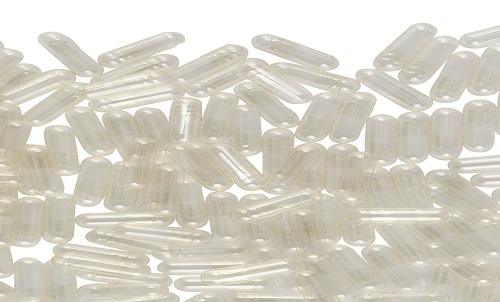Among the numerous ingredients available in the market, HPMC is one of the most commonly used vegetable-based excipients for dietary supplements. It is a pure, stable and gluten-free hydrocolloid with non-allergenic properties.
The disintegration time of a HPMC capsule depends on the composition of the material, gelling system and media in which it is formulated. For example, carrageenan gelling systems with c-HPMC capsules in pH 6.8 USP phosphate buffer exhibit slow dissolution and simulated milk fluid with a delayed rupture and release of 30 min, whereas those containing a carrageenan/colloids complex in a phosphate-based emulsion display fast disintegration with a rapid rupture of less than 2 min.
Capsules are an ideal drug delivery system for gastric acid-sensitive nutraceuticals, probiotics and other gastrointestinal-focused products. They also provide protection against moisture and are a good targeted delivery system for enteric-coated APIs.
Although gelatin-based capsules have remained the most popular choice of a large number of pharmaceutical and nutraceutical companies, they are facing increasing challenges with demand for vegetarian capsules in the global market. This has triggered manufacturers to diversify their product portfolios by adding a mix of gelatin- and veggie-based capsules.


 中文简体
中文简体 English
English
